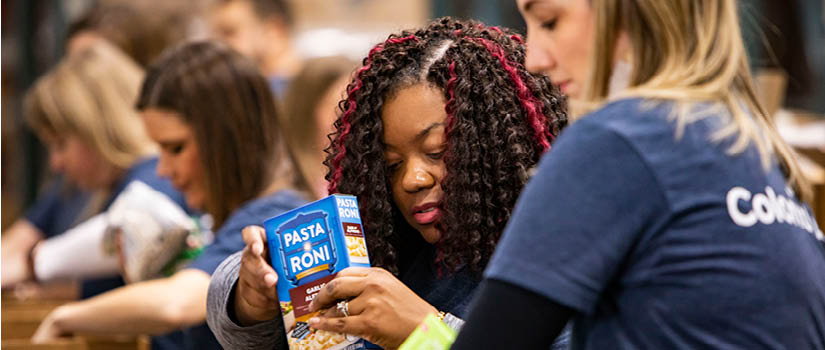The Moore School’s Operations and Supply Chain Center is creating a humanitarian initiative to improve operations, business processes and supply chains at nonprofit organizations – and ultimately – make their work more impactful. Students and faculty members will partner with for-profit companies, who will sponsor semester-long and year-long projects for the nonprofit organizations.
Currently, for-profit companies work with the Operations and Supply Chain Center at the Moore School on semester-long senior capstone projects. Some of the companies have completed as many as a dozen projects in the past decade. The center projects have made partner companies’ processes more efficient and helped them achieve more than $275 million in collective recurring cost savings.
During the same time span, a mid-level operations and supply chain course has already worked with nonprofits to help them achieve more efficiency and ultimately help more people in their work.
The capstone projects are more hands on and detailed since the whole project focuses on operations and supply chain issues for that one company over the course of the semester. The program prepares students for designing, implementing, managing and improving operations, supply chain and business processes.
The operations and supply chain management department would like to contribute such improvements to socially focused nonprofits, which could directly benefit from their work in accomplishing their missions, said Sanjay Ahire, a Moore School operations and supply chain management professor and co-director of the Operations and Supply Chain Center, which is founding the Operations and Supply Chain Humanitarian Initiative.
“The capstone course has completed more than 280 projects for the for-profits companies; in the next five years, such an initiative will be even more impactful,” Ahire said. “For nonprofits, it won’t just be savings in dollars but savings in lives and dignity for vulnerable populations, right? That’s the idea.”
Ahire and his colleagues have been pitching the idea to companies they’ve worked with on past projects. They are setting up the humanitarian initiative so that either the company can identify a nonprofit they want to sponsor, or the Moore School team can pick the nonprofit. Ahire has worked with Harvest Hope, SC Thrive, Edventure Children’s Museum and Sisters of Charity Foundation, among others, in his mid-level courses and would like them and similar nonprofits to be able to participate in the semester-long capstone projects to make their charitable work more far-reaching.
“Nonprofits are faced with the dual pressures of providing humanitarian services, such as food, shelter, health care and counseling, to the most vulnerable segments of population – and at the same time, are working with scarce funding resources from public and private sources,” Ahire said. “It is increasingly critical for them to develop the capabilities of using their financial, human, technical and material resources to manage their operations efficiently and effectively. It is of paramount importance in today’s context of the COVID-19 pandemic, which will increase the demand for and pressures on socially missioned nonprofits in the coming months and years to serve large swaths of our citizens overcome with health and financial hardships.”
SC Thrive, one of the organizations that works with Ahire’s mid-level course, has already had to adjust to the online-only environment the pandemic is requiring. CEO Tricia Richardson said her organization is overcoming barriers as much as is possible considering they help low-income South Carolina residents apply for benefits like Supplemental Nutrition Assistance Program (SNAP), Medicaid, long-term care, among others.
Many of SC Thrive’s clients do not have reliable internet access. This is just one operations and supply chain issue they are facing. In past projects, Richardson said Ahire’s students allowed her staff to create a more strategic, non-biased decision-making process on which outreach efforts provided accessible resources to the many individuals that need them in South Carolina.
“The experience has been invaluable and allowed us to step back and look at our outreach efforts in a whole new light,” Richardson said. “It has enabled us to be more efficient in our methods and more strategic in how to capture our data and analysis for better outcomes.”
Ahire said working with nonprofits also teaches students the value of their own operations and supply chain competencies to make a real contribution to the “life-saving” work nonprofits do in their communities. It expands their perspective to include social responsibility.
“Equally important as the capstone projects with nonprofits, I want to make sure students go out in the real world, become really successful executives and make money and give to these nonprofit organizations,” he said. “Working with nonprofits while in the program will make them successful and socially responsible professionals.”
While they are still formalizing the humanitarian initiative, Ahire and his colleagues are considering adding Graduation with Leadership Distinction honors for students who work with nonprofits on their capstone projects. He also would like to see the possibilities for the humanitarian initiative to tap into organizations like the Bill Gates Foundation or the Carnegie Foundation to maximize its reach across and enhance the long-term capabilities of nonprofits.
